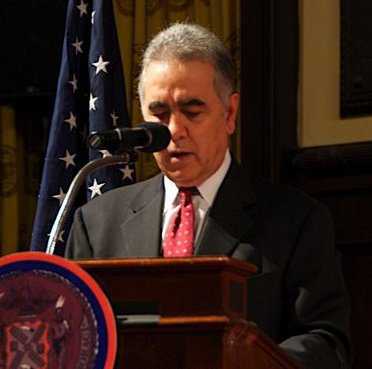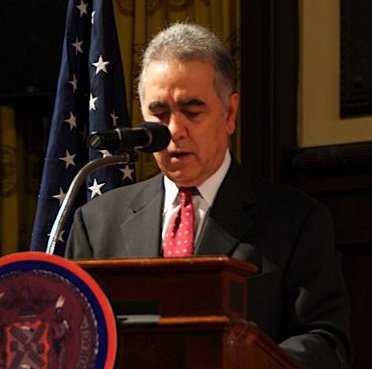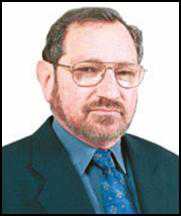A Reality Check On US-Turkish Relations
Beyond these words of praise, his contacts largely served to reiterate the growing consensus between the two countries, rather than breaking new ground on any major issue. While seeking to mobilize Ankara’s support for key US strategic interests in the Middle East, Biden at the same time worked to assure his Turkish counterparts about the continuation of US strategic involvement in ensuring regional stability. In charge of the Obama administration’s Iraq portfolio, Biden’s visit to Ankara was preceded by his earlier stopover in Iraq. In many ways, the US experience in Iraq was also a major turning point for Turkish-American relations. Following the disagreements caused by the US invasion of Iraq in 2003, bilateral relations cooled, resulting in serious questioning on both sides concerning the future of the alliance that tied both nations together. Over time, the two countries adjusted their policies in Iraq, as they soon realized that they have major stakes in the stabilization of this country. Their coordinated action in Iraq has been an important development that helped maintain strategic cooperation in recent years. In an environment where the region is in flux in the wake of the Arab Spring and the US military withdrawal is imminent, however, Turkish concerns over the future of Iraq have become even more worrisome. In that regard, Biden largely worked to convey the message to Turkish leaders that the United States will remain committed to that country after the military withdrawal.
Obviously, another issue of shared concern is the evolving situation in Syria, which runs the risk of destabilizing the region. Despite its initial argument for a controlled transition under Assad’s watch, Turkey has increasingly criticized the Syrian government forces’ brutal crackdown against the opposition and emerged on the frontline of the international efforts to prevent further killing of civilians. As Turkey recently announced a new round of sanctions against the Assad regime in similar fashion with Western powers, the visit provided an opportunity for exchanging information and discussing ways to further coordinate policy on Syria. However, this convergence is putting the Turkish government in a risky situation as Turkey moves to initiate economic sanctions, which might hurt certain constituents and especially local economy. Therefore, although Turkey has followed a policy in tune with the Western and US position, it has to tread a fine line to avoid being seen as too closely aligned with the United States. Most opposition parties and nationalist circles in Turkey view the government as implementing a program in Syria imposed upon it by the United States and interpret Biden’s visit as Ankara’s submission to Washington in its regional policies (Yenicag, December 4).
Iran was another major item on Biden’s agenda. Biden reportedly sought to convey the message that the US policy of isolating Tehran through coercive measures was effective and they needed to be pursued vigilantly (Hurriyet, December 3). Yet another source of friction in the bilateral relationship once, the recent change in Turkey’s policy on Iran has pulled Ankara and Washington together, also leading to a series of threatening statements coming from Tehran. Granted, Turkey remains reluctant to impose new sanctions against Iran, in an effort to avoid putting further strain on its relations with Iran.
In return for Ankara’s more cooperative position on issues of interest to the United States, Washington has been more forthcoming in its support for Turkey’s fight against the terrorist campaign by the Kurdistan Workers Party (PKK), which has seen escalation in recent years. Biden reiterated recent steps undertaken by the United States, including the stationing of Predator drones in Incirlik to increase Turkey’s information gathering capacity, and selling three Super Cobra helicopters to Turkey. Moreover, Turkish President Abdullah Gul seemed content with Biden’s statements that even after the withdrawal of US forces from Iraq, Turkey would continue to receive support from not only the United States, but also Iraqi groups in its fight against the PKK , December 2). Though such statements obviously are important signs of commitment from a symbolic and political point of view, the level of military contribution is unlikely to bolster Turkey’s operational ability against the PKK and change the situation on the ground decisively in favor of the Turkish army.
Granted, the accelerating pace of the US-Turkey security partnership has been an issue of concern in terms of the ongoing process of domestic transformation inside Turkey. Some commentators who have grown critical of the AK Party government’s democratic credentials and its commitment to fundamental rights have been expecting the West and the United States to act as a restraint against the “authoritarian tendencies” of the government. Troubled by the new realignment between Ankara and Washington, they have expressed concern that the US might turn a blind eye to the government’s conduct in domestic politics. One commentator argues that “the Turkish government takes it as carte blanche to be careless about political freedoms, to limit free speech and to crush the Kurdish opposition in return of its ‘great’ role in regional politics” (Hurriyet Daily News, November 15).
Partly in an effort to allay such concerns, US delegations visiting Turkey and US diplomats based in Ankara often emphasize the importance of respecting basic rights. Maintaining the same tradition, Biden highlighted the need for a free political climate, and urged Turkey to maintain the momentum for rewriting a more civilian and democratic constitution (Anadolu Ajansi, December 4). It remains to be seen if such statements will be followed by deeds in the coming months and whether the US will observe the AK Party’s domestic conduct in a manner to satisfy its critics.






